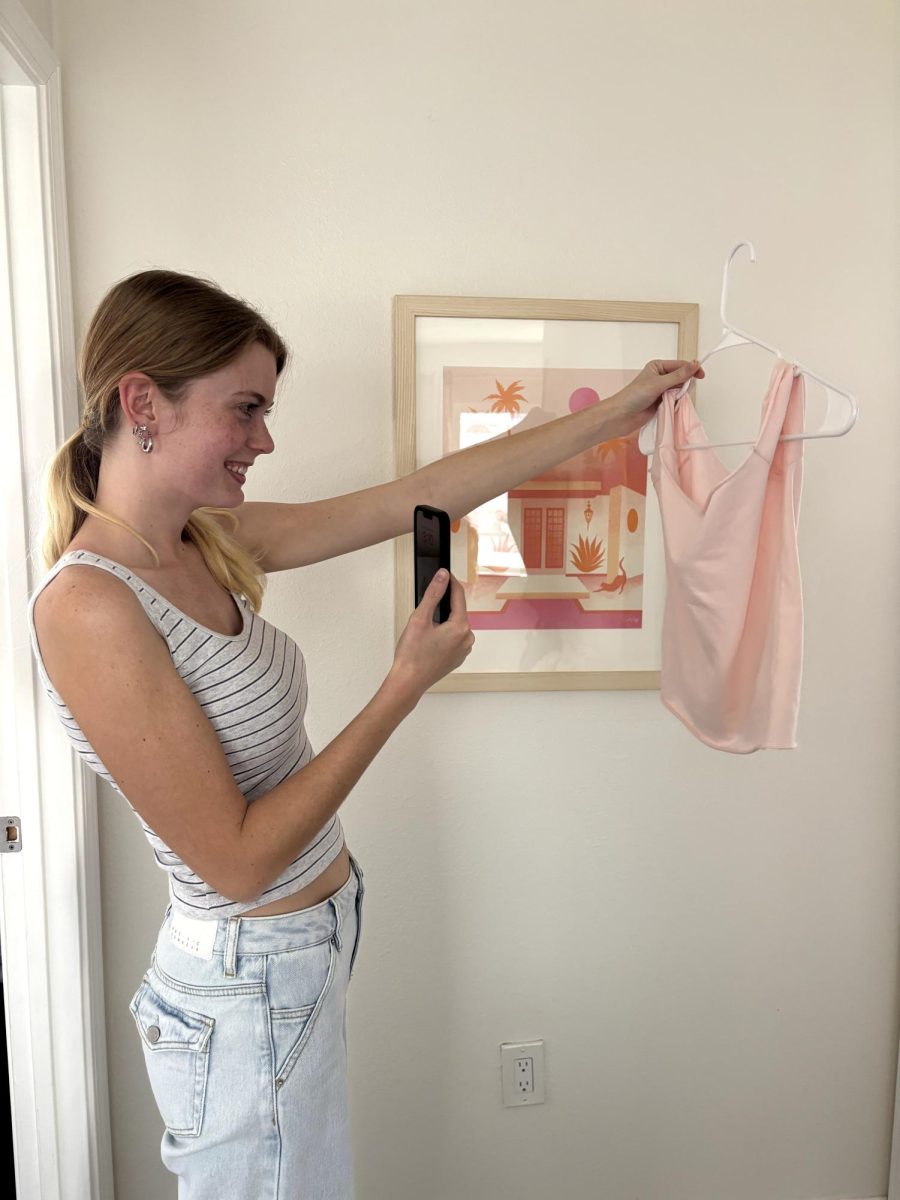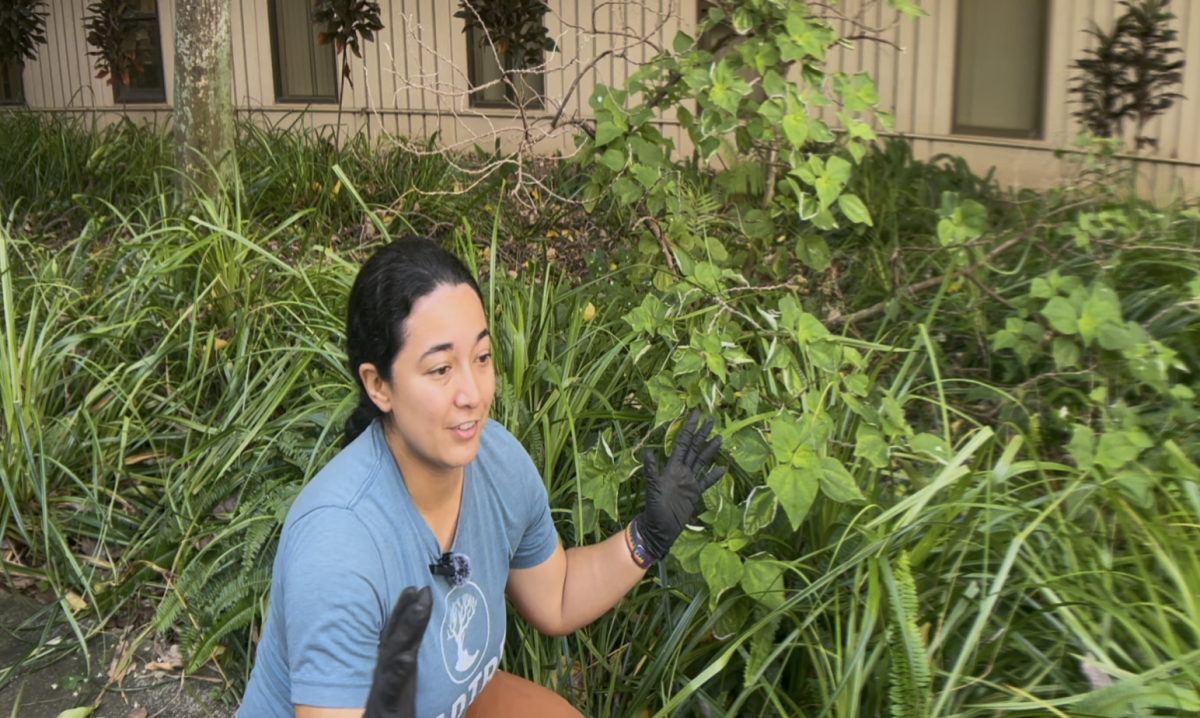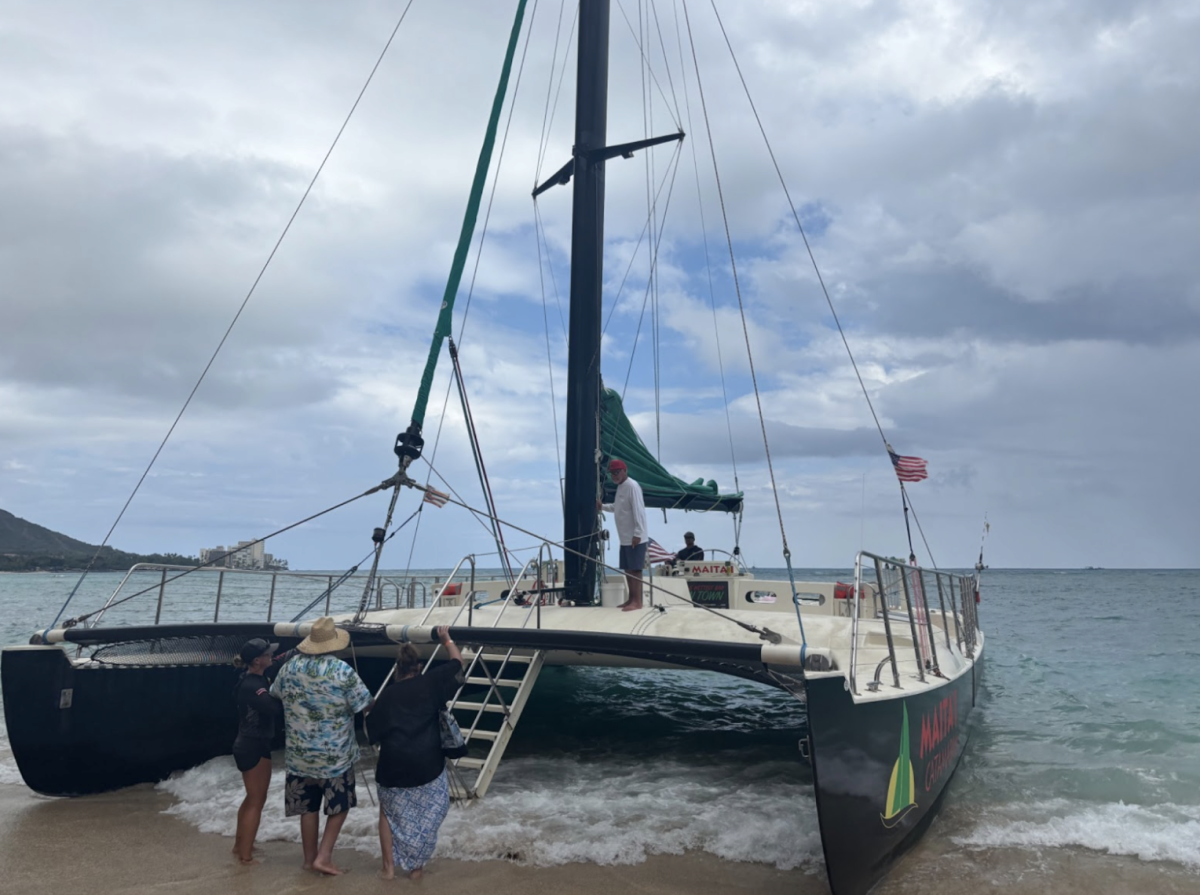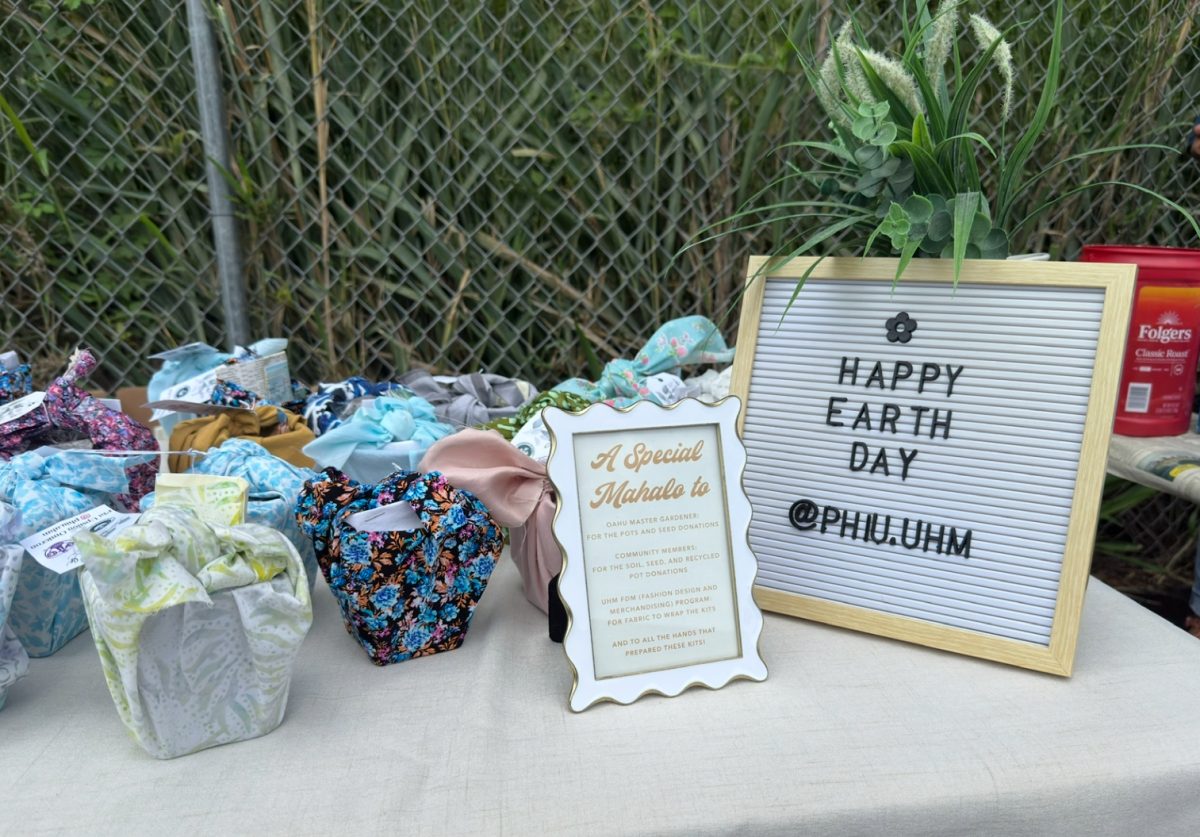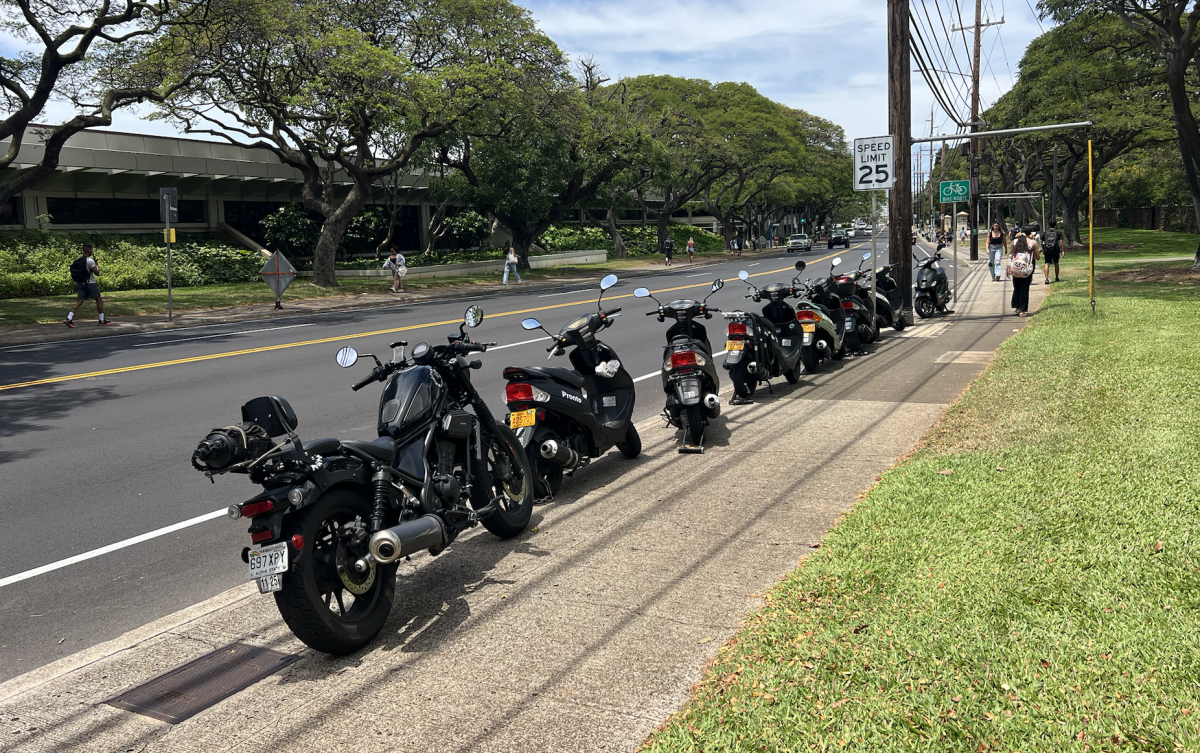For Casey Barreca, a pile of old clothes turned into a profitable side hustle thanks to the rise of fashion e-commerce.
“I had a bunch of clothes lying around that I didn’t wear, didn’t need anymore, and didn’t want to throw away or donate,” said Barreca, a University of Hawai‘i at Mānoa student. “You never know where [donated clothes] are going to end up — if anyone’s ever going to use them or if they’ll just be thrown away or end up in a landfill.”
For many students in Hawaiʻi, fashion e-commerce offers a way to participate in second-hand fashion while also making some profit. In recent years, platforms like Depop and Facebook Marketplace have gained significant popularity, combining thrift culture with entrepreneurship.
Depop alone was downloaded 641,000 times globally in September 2024, according to the Statista Research Department, while Facebook Marketplace boasts over 1 billion active users worldwide.
“Here in Hawaiʻi, it’s hard to find certain items in thrift stores,” said Hokumaile Serna, a recent graduate with a bachelor’s in Fashion Design and Merchandising who is currently pursuing her master’s in Marketing Management. “Online platforms make it easier to find what you want, especially niche or vintage things you can’t get locally.”
The rise of e-commerce aligns with broader trends in casual entrepreneurship, offering students a low-risk way to manage small businesses alongside their education. The flexibility of platforms like Depop allows users to experiment with sales strategies while developing practical skills.
“E-commerce lets you find niche things. It’s fast—there’s a search engine, and it’s international, so it reaches people who are really into specific styles or items,” said Serna. “It’s kind of entrepreneurial in the sense that you see a problem, you solve it, and you make money based on the solution. If you know people would buy a bag or shoes you no longer need, you put it on a platform and sell it.”
For Barreca, e-commerce offers both sustainability and financial relief. It creates a great way for her to make small side money and get money back that she spent on clothes as a full-time college student.
“It’s an extra source of income for groceries, fun activities and other expenses, ” said Barreca.
Barreca, who considers herself a casual seller, says that experiencing casual entrepreneurship has taught her valuable skills. Being able to work with buyers, navigate issues and understand what sells and what doesn’t and how the algorithm works in order to help boost her sales.
“The things I list usually sell quickly due to the amount of users on these platforms. It’s also easy to use and provides a lot of guidance, making it great for beginners,” Barreca added.
Though the platform is convenient, Barreca notes that selling in Hawaiʻi comes with unique challenges.
“Shipping takes longer than most places, and I’ve had buyers complain. I usually have to explain that I’m from Hawaiʻi and shipping delays are normal,” she said.


